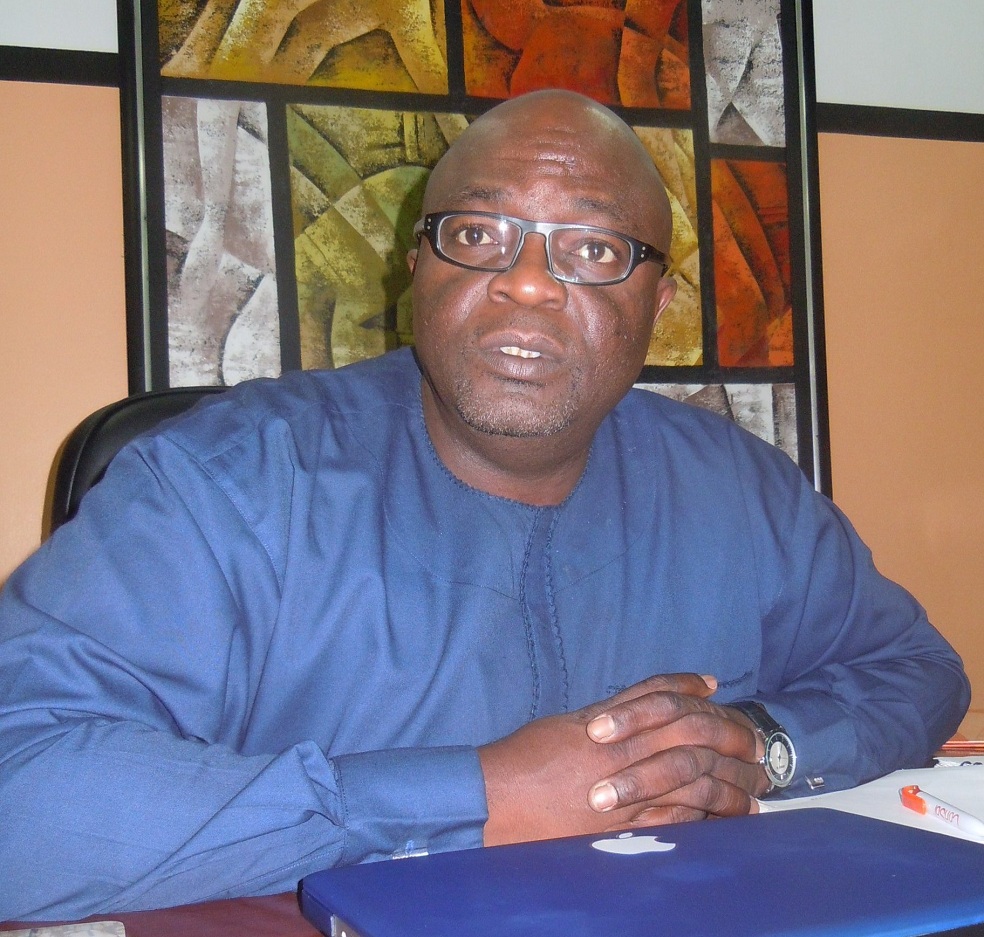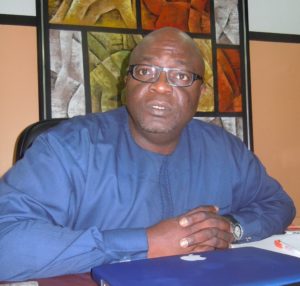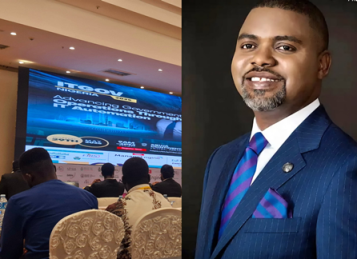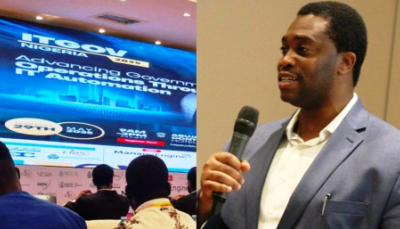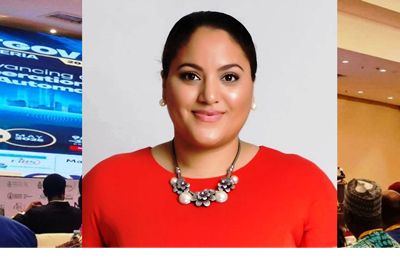Abiodun Adeoye, MD/CEO of ConSol, Nigeria’s leading contact center services provider speaks with eT Edge News, ANTHONY NWOSU on the growth path of the country’s largely under-explored BPO industry.
ConSol has the largest deployment of outsourced call center agents in the country, and the largest single-site contact centre complex in West Africa, what is it offering uniquely in Nigeria?
With the BPO (Business Process Outsourcing) industry growing in Nigeria, one of our primary objectives of setting up this business is to try and solve the biggest social challenge which many countries are witnessing: unemployment. The BPO industry employs a significant number of people in India, the Philippines and Latin America with thousands of people working in that section of the market. Essentially, Nigeria being a country with about 160 million people has such a huge potential with a very large employable population who are mostly graduates and speak good English, even better than India because our English is clearer and more accepted, even when we speak to foreign people they understand. This is mostly what motivated us to set up ConSol. We are essentially pioneers and we recognized the opportunities early as far back 2002 to 2003 for the development of contact centre industry to create employment and also to start to transform the way businesses interact with their customers. With the penetration of telecoms, it opens up a whole new way for companies and service delivery organizations to interact with their customers and better service their customers, and also more importantly, get feedbacks from their customers. The contact centre also serves as a vital tool for public services delivery. One of the areas we have been able to make significant economic impact is with public safety services delivery with the Lagos State government. We presently run the Lagos State Emergency Services Contact Centre using the toll-free numbers “767” or “112” for telephone access to emergency call center. The entire business process is outsourced to ConSol. The 767 Emegerncy Call Centre enables access to public safety services provided by the RRS (Police), Lagos State Fire Service, Lagos State Ambulance Service (LASAMBUS), LASTMA, Task Force, SEHMU and LASEMA. Easier communication access to these services through the contact centre has helped to significantly reduce crime rates in Lagos by about 90 percent. We are providing the public the ability to interact with the security agencies delivering those services. They call 767; our agents take the call according to our defined business process and escalate it to security agencies that go out there to deliver those services. We then get feedback whether they got there and if they got there in time and so on. It’s an industry with so much potential here in Nigeria. The good news is that within the public sector there has been more recognition of the potential in the BPO industry. I think the service industry has far more potential to generate FDI and dollar revenue to Nigeria. India generates over 60 billion dollars a year for the outsourcing industry.
So where is the market headed in terms of acceptability and reach?
The next frontier and focus is developing the local market not just in Lagos but across the country. We need to improve the public safety service delivery and public sector services delivery. We recently got notice of winning a bid to provide a government contact center for the Ministry of Communication Technology. We would be signing the contract soon. That again would employ over 150 people thereby creating more employment. If we take Ministry of Agriculture for example, people will know how to get their fertilizers, where to get the fertilizers and when to get the fertilizers. Beyond the local market, there is an international market for BPO services. Contact Centre operations are not a core business of most organizations or companies, and they invariably outsource these services to BPO companies like ConSol. Today, companies in the US and UK outsource (off-shore) to India and Philippines. However, Nigeria has the advantage of better time zone alignment. We are five hours behind US and in the same time zone alignment with Europe. We have the technology today to a UK number and connectivity such that if somebody picks up a phone in the UK to dial, it can get answered here at our call centre to deal with the person’s enquiry. The only major challenge is that Nigeria is a bad address. People see a lot of negativity in the news. Foreign firms thinking of outsourcing their business in Africa will think of South Africa first and then maybe Ghana. International organizations can’t outsource their core businesses to a company operating in an environment where all they see and hear is instability in the country. Our governments at all levels have to understand that they need to develop the image of the country. The technology is there. The people are there. I think things will change if we get our acts right.
How do you get organizations in public and private sectors to accept outsourcing as a way of doing business?
I recently had a meeting with the ComTech Minister where we talked about things that need to happen to encourage organizations like us to grow. We have been in business since 2006 and it has been tough. Delivering our service in Nigeria is a tough business. You are running your business on diesel and it doesn’t make you competitive anywhere internationally. As one of the foremost outsourced call centers, there should have been a sort of pioneer status, a tax rebate/holiday as was given in the telecoms sector where they had tax free holiday for the initial five years of their operations. While you still have your diesel costs to grapple with, the tax agencies will come and hit you, you have the LIRS, FIRS, then you have ITF, PENCOM, stamp duty, etc. Our efforts are frustrated in these areas. These are the area of taxation the government should come in to provide relief. Another area is the situation where foreign companies come from India and they are contracted by multinationals to come and do business here locally in Nigeria. I think government regulation aimed at protecting local BPO call centers with local content bills should be looked into, such that any organization that is coming into the country to do business must partner with the local BPO call center. There is nothing that these foreign organizations can provide that we are not doing. We are even doing more. In terms of human development, we train people and contribute to human capital development.
Are you saying that protectionism is necessary here?
Government regulation should protect companies like us. If an organisation is coming in to do business in Nigeria, they shouldn’t hold it 100 percent, it is necessary to see to this. There is nothing that these foreign call center outsourcing companies can provide in Nigeria that we cannot provide. A lot of companies running call centres have gotten their call centre staff from ConSol. We train our agents and we certify them. We partner with a firm in India called QAI Global. They are foremost institution for human capacity building in India and other parts of the world so our agents carry a certificate that is globally recognized. There is nothing that these foreign firms can do that Nigerians can’t do. What they do is hold the management positions while they employ Nigerians to do the frontline jobs.
Is there an association where all the operators can meet and gets their grievances known to the government?
We have actually set up the Association of Call Centers Operations of Nigeria (ACCON) and we also have an Association of Outsourcing Professional of Nigeria (APON). We are still trying to organize ourselves but we have presented ourselves to the Ministry of ComTech, the supervisor-ministry of the industry because we fall under the Ministry due to the fact that our kind of business is IT driven. We are supposed to be regulated also by NCC. These associations will be saddled with the responsibility of championing the cause of outsourcing call centres. India did not become a big outsourcing industry overnight, they were knocking at the door of various firms in India and advertising Hyderabad and other locations in India. These new bodies would also market us; help to give potential clients overseas the comfort and confidence of making Nigeria their outsourcing destination of choice. In addition, we also need to have a promotional council dedicated to promoting Nigeria’s image abroad.
The call center is a vital organ of an organization. Companies can’t hand over their contact centre operations to just any outsourcing firm. What edge does ConSol have over others?
Credibility I guess has a major role to play here. We were knocking on doors of many organizations in the early days but no one listened. Companies outsource because they want to reduce costs. Our value proposition speaks for itself. We efficiently utilize technology, processes and our people to deliver value proposition to meet our customer’s business goals and objectives, and we do it well. We also ensure no if you like guarantee the integrity and protection of customer’s data through very tight SLAs, technology and processes. We utilize cutting edge technology that provides different levels of security whereby an unauthorized person can’t access customers’ data. We have been able to convince organizations like BAT, Sproxil, Proctor and Gamble, NBL and so many more. Sproxil is a drug authentication scheme which we try to authenticate with follow up data. We work with MANTRAC. We have built call centers for Skye Bank, Unity Bank and other companies in the HMO industries like Hygea HMO and Premier Medicare in Ibadan. We have also gotten contract to build call center for Royal Exchange in the insurance sector.
Finally, what are the challenges posed by inadequate broadband penetration to the call center businesses in Nigeria?
Today, there is far more broadband capacity available onshore from submarine sea cable project by MaineOne, Glo-1 and to a certain extent the SAT-3. However, the main challenges with broadband penetration are the “last mile” mainland metropolitan and long distance delivery of connectivity to the end user. Radio technologies are being deployed for last mile bandwidth delivery, which are still susceptible to failures and capacity limitations. Of course this would have a negative impact on our ability to deliver our service remotely onshore on a long distance basis and worse still offshore to foreign destinations. At ConSol, we have been fortunate enough to establish last mile fibre connectivity to our contact centre due to our location which enables us to deliver our services offshore as of today. However, limited onshore last mile fiber penetration make establishing remote contact centers from our central data centre a challenge. Our contact centre services delivery is still predominantly, say 90 percent, through the voice channel and hence requires more bandwidth. However, there are other channels that are growing as an interface to the contact center like SMS, email, live web Chat and social media. In addition to having fibre connectivity at ConSol, we also built a mast that will enable diversity connectivity through microwave. I believe the future of our business and industry is bright. You can usually benchmark the growth of the industry by the relative growth of the players. At ConSol, we have doubled our revenue year on year for the last four years. In 2012, our turnover was about N700 million and this year we are projecting a turnover of over N1.4Billion.Our success shows that the industry is growing and we believe that our competitors should be enjoying similar success.


